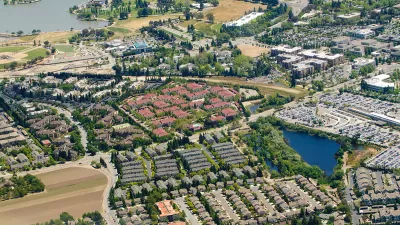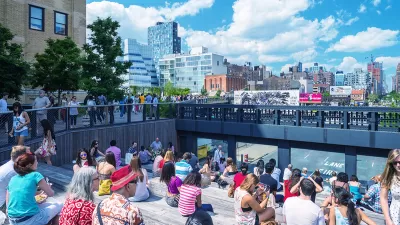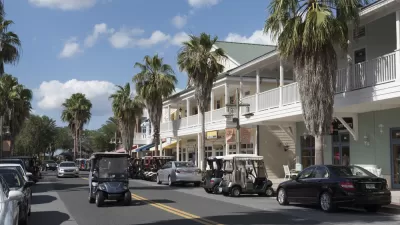The "back to the city" movement of the past decade or so could prove to be the outlier, as Census data shows population growth slowing in the biggest cities while suburban areas lead population growth in more metropolitan areas.

William H. Frey writes:
As we approach the end of the 2010s, the biggest cities in the United States are experiencing slower growth or population losses, according to new census estimates. The combination of city growth declines and higher suburban growth suggests that the “back to the city” trend seen at the beginning of the decade has reversed.
Frey provides plenty of specificity about which large cities are showing slowing growth (e.g., Boston, San Francisco, Dallas) and which large cities are shrinking (e.g., Chicago, New York City, and San Jose). "In some respects, New York epitomizes the reversal from beginning of the decade city magnetism," according to Frey. Large cities showing an uptick in growth are in the vast minority, according to Frey, but they include Sacramento, Tucson, and Henderson.
A consequence of the decline of big city growth, according to Frey, is the return of suburbanization:
In 2011-2012, city growth exceeded suburb growth in 19 of the 34 Sun Belt metros, and in eight of the 19 Snow Belt metros. However, in 2017-18 the city growth advantage appeared in just nine Sun Belt metros and two Snow Belt metros. Among these 11 areas that still registered city growth advantages are: Los Angeles, Washington, D.C., San Francisco, Denver, and Boston.
As for why this return to historic settlement patterns is underway, Frey only offers a very speculative sentence: it's "perhaps propelled by young adult millennials who may be finally departing dense urban cores as they make a delayed entrance into marriage and the housing market."
FULL STORY: Big city growth stalls further, as the suburbs make a comeback

Planetizen Federal Action Tracker
A weekly monitor of how Trump’s orders and actions are impacting planners and planning in America.

Maui's Vacation Rental Debate Turns Ugly
Verbal attacks, misinformation campaigns and fistfights plague a high-stakes debate to convert thousands of vacation rentals into long-term housing.

San Francisco Suspends Traffic Calming Amidst Record Deaths
Citing “a challenging fiscal landscape,” the city will cease the program on the heels of 42 traffic deaths, including 24 pedestrians.

Defunct Pittsburgh Power Plant to Become Residential Tower
A decommissioned steam heat plant will be redeveloped into almost 100 affordable housing units.

Trump Prompts Restructuring of Transportation Research Board in “Unprecedented Overreach”
The TRB has eliminated more than half of its committees including those focused on climate, equity, and cities.

Amtrak Rolls Out New Orleans to Alabama “Mardi Gras” Train
The new service will operate morning and evening departures between Mobile and New Orleans.
Urban Design for Planners 1: Software Tools
This six-course series explores essential urban design concepts using open source software and equips planners with the tools they need to participate fully in the urban design process.
Planning for Universal Design
Learn the tools for implementing Universal Design in planning regulations.
Heyer Gruel & Associates PA
JM Goldson LLC
Custer County Colorado
City of Camden Redevelopment Agency
City of Astoria
Transportation Research & Education Center (TREC) at Portland State University
Jefferson Parish Government
Camden Redevelopment Agency
City of Claremont





























